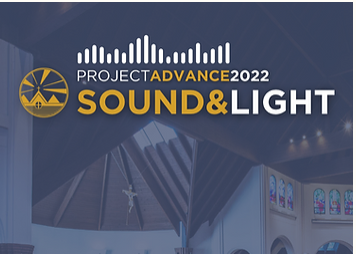The other day, a parishioner whom I like and respect gave me some feedback on my preaching. He likes my homilies, but says I say too many things. Not that I preach too long, but that I preach too much.
He explained
that it’s hard to take home one key point to think about.
So today I am
following his good advice. Please listen carefully: Pray for the dead.
Four words,
but especially important for every Catholic. Pray for your dead.
There are
four reasons why we pray for the dead.
First, because
that’s what Catholics do. When I Googled “Catholic Catechism, prayer for the…” I
got seven suggestions from the search, including prayer for the Church, prayer
for the sick, and prayer for the day. But the top of the list was prayer for the dead.
Our Catholic faith holds that we can indeed continue to care, help, and express generosity toward people—even after they have died—through prayer. It is a distinctive Catholic belief not shared by all our fellow Christians.
Second, because praying for our
deceased loved ones and those who have done good to us is a duty. It’s something
we owe our parents, mentors, friends, teachers and—yes, priests—who have left
this life.
If they have been a blessing to us,
we thank them with the gift of prayer. If they have been a burden to us, we
forgive them through our prayers.
Third, because praying for all the faithful
departed is part of belonging to the great communion that is the Church. Notice
how at every single Mass we pray for the dead. No exceptions. And not only our
own dead, but the unknown dead.
In the first Eucharistic prayer we pray
to the Lord for his servants who have gone before us with the sign of faith. In
the second Eucharistic prayer we remember “our brothers and sisters who have
fallen asleep in the hope of the resurrection” and all who have died in God’s
mercy. And so on in all the Eucharistic
prayers, not to mention the intercessions or prayers of the faithful each week.
All Souls Day “reminds us that the
bonds of Baptism make us one in Christ and are stronger than death.” (S. Joseph
Krempa, Daily Homilies: Seasonal and Sanctoral, Vol. 3, p. 211)
Fourth, because if we don’t continue
praying for the dead—if we become the first generation of Catholics who no
longer take this tradition seriously—who is going to pray for us?
I have some skin in this game, a real
personal interest. If those to whom I have ministered stop praying for the
dead, I’ll be spending a lot more time in Purgatory than I want to.
As St. Augustine said somewhere, monuments are built for the living; prayer is the best way of helping the dead.
I truly do want people praying for me when I’m gone.
Let me return to my one key point. We
must pray for the dead.
The point isn’t only important—it’s
urgent. As you know, I have been a priest for over 35 years. In my first
parish, the church was full every year for multiple Masses on All Souls Day.
Here at Christ the Redeemer, we’re lucky to see an extra 75 people even though
we offer three Masses every year.
It’s time to reverse the trend and to
pray for the dead—not only as a duty but a privilege. What a joy to know we can
try to repay the goodness of our departed loved ones, make up for some of our
failings toward them in life, and exercise a sacred responsibility as members
of the Mystical Body of Christ.
And how simple it is! We have Mass on
Wednesday, All Souls Day, at 7:30 in the morning, at 9:00 with the school children,
and at 7:00 in the evening. If you’re so busy none of those times work for you,
well maybe you’re too busy.
The Church even turbocharges our
prayer on All Souls Day with what is called an indulgence—remitting in the eyes
of God the temporal punishment (think Purgatory) due to sins whose guilt has
been forgiven. A plenary or full indulgence for the souls in Purgatory is
offered just for visiting a church on Wednesday, with the prescribed condition
of praying the Our Father and the Creed.
The same indulgence for the faithful
departed is available all week—from November 1st through the 8th—if you visit a
cemetery and pray, even silently, for the dead.
Pray for the dead.
What could be easier? Or perhaps I should ask: what could be more important?


.jpg)


